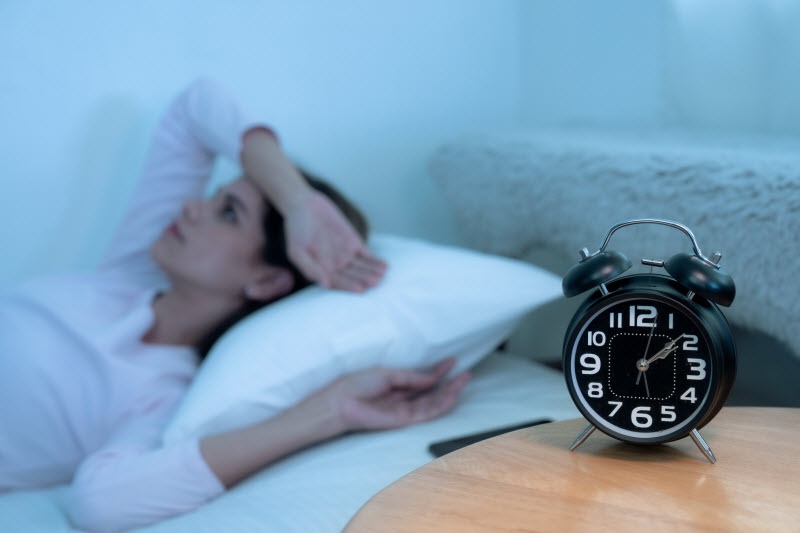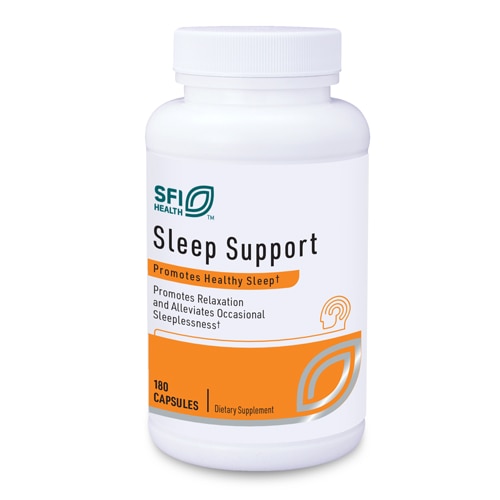[vc_row][vc_column][vc_column_text]If you toss and turn at night, unable to get a decent night's sleep, there is a good chance
anxiety is to blame.
Nearly one-third of Americans experience an anxiety disorder at some point during their lives,
according to the National Institutes for Health. And for millions, this can result in not getting enough rest at night.

"Anxiety can significantly disrupt the sleep cycle," says
Dr. Ryan Sultan, an anxiety and
sleep expert and professor at Columbia University in New York.
When a person experiences anxiety, their body can enter a heightened state of arousal, triggering the "fight-or-flight" response. "This reaction is meant to prepare us for potential threats," Sultan says.
A rush of adrenaline and increased heart rate follow, "which are not conducive to initiating or maintaining sleep," Sultan says.
Signs that anxiety is affecting your sleep
Everybody has the occasional night where they struggle to fall asleep or to remain at rest. But for some people, the problem is more persistent and might be related to anxiety.
Sultan says there are some key signs that your sleep troubles might be related to anxiety. They include:
- Difficulty falling asleep. When your head first hits the pillow, anxiety can immediately begin to sabotage your efforts to sleep. “You may find yourself lying awake for long periods, unable to shut off your worrying thoughts,” Sultan says.
- Waking up frequently. Anxiety can cause you to wake up multiple times during the night, interrupting your sleep cycle.
- Night sweats. When you are anxious, your body temperature might rise, which in turn can cause you to sweat.
- Vivid dreaming. If you experience memorable dreams, it might be a sign that you are anxious. “Increased anxiety can often lead to more intense, vivid or even disturbing dreams or nightmares,” Sultan says.
According to the Cleveland Clinic, other
signs of anxiety that might occur shortly before you go to bed include digestive issues, rapid breathing and a fast heart rate, and tense muscles or even trembling.
Virtually all psychiatric disorders -- including those related to anxiety -- feature some degree of sleep disruption, according to the Anxiety & Depression Association of America.
Interestingly, while underlying anxiety often can lead to sleep issues, the reverse is also true: Some people who experience sleep deprivation go on to develop an anxiety disorder. The ADAA notes that people who struggle with chronic insomnia are at high
risk for developing an anxiety disorder.
How to prevent anxiety from ruining sleep
There are several steps you can take to prevent anxiety from hampering your ability to sleep. Reducing the anxiety you feel can go a long way toward improving nightly sleep.
Sultan recommends practicing relaxation techniques, such as progressive muscle relaxation or guided imagery.
Progressive muscle relaxation involves tensing and relaxing different muscle groups to promote physical relaxation. With guided imagery, you sit or lie down and imagine yourself in a peaceful situation, such as at the beach or in a forest.
Mindfulness meditation also can help relieve anxiety by keeping you focused on the present moment rather than wrapped in rumination on anxious thoughts.
"You might
meditate for 10 minutes before bedtime, focusing on your breath and gently bringing your attention back whenever it wanders," Sultan says.
Some people find that journaling helps reduce anxiety.
"Writing down your worries can be a great way to offload them before bed," Sultan says. "Set aside 15 minutes in the evening to write down your concerns and potential solutions."
If these steps do not significantly reduce your anxiety, it might be time to seek help from a professional.
Sultan says cognitive behavioral therapy for insomnia -- sometimes known as CBT-I -- can be helpful, as it allows you to identify and replace thoughts and behaviors that cause or worsen sleep problems.
Research has found that the vast majority of
patients who have primary insomnia see improvements in their sleep patterns after engaging in CBT-I sessions.
It’s also important to note that some medical conditions – such as hypothyroidism, where your bloodstream has insufficient levels of thyroid hormone and your metabolism slows down -- can contribute to a
combination of anxiety and insomnia.
So, a visit to your doctor might be in order to rule out medical conditions that are contributing to your inability to sleep soundly.
More tips for better sleep
In addition to boosting relaxation and reducing anxiety, there are several other things you can do to improve your sleep habits and environment so that you
promote better sleep, Sultan says.
They include:
Establish a regular sleep schedule.
Rising and going to bed at the same time on each day of the week helps regulate your body's internal clock, which in turn promotes better sleep. “For instance, if you aim for seven to nine hours of sleep, calculate when you need to wake up and set your bedtime accordingly,” Sultan says.
Limit screen time before bed.
Computer and phone screens emit
blue light that can interfere with your body's production of melatonin, a hormone that regulates sleep. “Try to turn off all electronic devices at least an hour before bedtime,” Sultan says.
Turn your bedroom into a sleep-inducing environment.
To promote sleep, the bedroom should be dark, quiet and cool. If necessary, use a white noise machine or earplugs to aid sleep. An
eye mask also might help promote rest.
Exercise regularly.
Regular physical activity can both lessen anxiety and promote sleep. “Aim for at least 30 minutes of moderate
exercise most days of the week,” Sultan says.
Limit caffeine and alcohol intake.
Unfortunately, that morning cup of coffee or evening beer can interfere with your sleep. Sultan says it is best to
avoid caffeine after lunch and to limit alcohol at all times, particularly close to bedtime.[/vc_column_text][/vc_column][/vc_row][vc_row][vc_column][vc_text_separator title="Featured Products" border_width="2"][vc_row_inner equal_height="yes" content_placement="middle" gap="35"][vc_column_inner width="1/3"][vc_single_image image="167448" img_size="full" alignment="center" onclick="custom_link" img_link_target="_blank" css=".vc_custom_1687212710585{padding-right: 7% !important;padding-left: 7% !important;}" link="https://www.vitacost.com/natrol-stress-anxiety-day-and-night"][/vc_column_inner][vc_column_inner width="1/3"][vc_single_image image="167450" img_size="full" alignment="center" onclick="custom_link" img_link_target="_blank" css=".vc_custom_1687212729715{padding-right: 7% !important;padding-left: 7% !important;}" link="https://www.vitacost.com/terry-naturally-anxiocalm-90-tablets"][/vc_column_inner][vc_column_inner width="1/3"][vc_single_image image="167449" img_size="full" alignment="center" onclick="custom_link" img_link_target="_blank" css=".vc_custom_1687212746132{padding-right: 7% !important;padding-left: 7% !important;}" link="https://www.vitacost.com/hylands-calm"][/vc_column_inner][/vc_row_inner][/vc_column][/vc_row]
 "Anxiety can significantly disrupt the sleep cycle," says Dr. Ryan Sultan, an anxiety and sleep expert and professor at Columbia University in New York.
When a person experiences anxiety, their body can enter a heightened state of arousal, triggering the "fight-or-flight" response. "This reaction is meant to prepare us for potential threats," Sultan says.
A rush of adrenaline and increased heart rate follow, "which are not conducive to initiating or maintaining sleep," Sultan says.
"Anxiety can significantly disrupt the sleep cycle," says Dr. Ryan Sultan, an anxiety and sleep expert and professor at Columbia University in New York.
When a person experiences anxiety, their body can enter a heightened state of arousal, triggering the "fight-or-flight" response. "This reaction is meant to prepare us for potential threats," Sultan says.
A rush of adrenaline and increased heart rate follow, "which are not conducive to initiating or maintaining sleep," Sultan says.



